Citizenship by Marriage: 14 Passports to Get by Marrying a Foreigner
June 26, 2024
Like it or not, it’s often assumed that when someone from an emerging country marries a US person – or Westerner in general – part of the motivation is that they’re seeking better life opportunities.
Now, it’s not our job to debate the merits of such assumptions, though it’s worth pointing out that we certainly don’t recommend seeking out a partner with a view to securing citizenship in their country. Anyway, with so many tax requirements these days, who in their right mind would want to acquire US citizenship or even a green card?
Still, the stereotype of marrying a foreigner for the purpose of acquiring a visa or green card can cut both ways. There are countries around the world that offer expedited naturalisation to those Westerners who want citizenship by marriage and the second passport that comes with it.
So, we’re not suggesting that you find some random beau to marry exclusively for the purpose of obtaining citizenship. However, our adage of ‘go where you’re treated best’ can apply just as much to dating as it does to legal tax reduction. After all, it’s perfectly reasonable to believe that global citizens would consider potential partners from other countries a good match.
Residency by Marriage v Citizenship by Marriage
Many misconceptions and some downright lies swirl around the issue of citizenship by marriage. One common mistake is the belief that marrying a foreigner immediately grants you citizenship of your spouse’s homeland. Don’t fall for this old line, as it’s only true in rare cases and generally only in Latin American countries.
Instead, marrying a citizen usually allows you to obtain residency in their country. In some of the wealthiest countries, such as Canada, marriage only gives you a reason to start living in the country and begin the naturalisation process in the same way as everyone else.
This can mean years of maintaining a substantial presence in the country and paying taxes, so the idea of citizenship by marriage to get a ‘Tier A’ passport may not be the best plan for high earners concerned with tax minimisation.
In some other countries, however, marriage to a local does offer a fast track to naturalisation. You generally still need to put in some time there, but it can be far less substantial and may not even require you to pay a lot of taxes.
Instant Citizenship by Marriage
So, in no particular order, here are 14 of the best countries where tying the knot with a local can open doors:
1. Brazil

With its low-key residency-by-investment program, Brazil offers foreigners a bureaucratic yet straightforward process if they have money to invest in the country. For example, as a permanent resident of Brazil, you can apply for naturalisation after just four years of ‘uninterrupted residence’ and strong ties to Brazil.
However, those with a Brazilian spouse qualify to apply for a second citizenship after just one year of uninterrupted residence there. Having immediate family ties entitles you to Brazilian citizenship within one year. That means citizenship by marriage is possible, just as it is by giving birth or adopting a child.
Simply being married to a native Brazilian can be equally beneficial for claiming a second passport. Brazil has been noted for not extraditing its own citizens while they are on Brazilian soil but this rule only applies to natural-born Brazilians.
On the plus side, Brazil is a diverse melting pot that allows dual citizenship for naturalised spouses as of 2016, and its passport offers excellent visa-free travel, including to Russia.
2. Israel

Israel has somewhat complicated laws when it comes to living and becoming a citizen there as a spouse of a Jew, but it still has a lot to offer passport-wise.
Israel’s ‘Law of Return’ is complex but, in principle, allows Jews and their descendants to obtain permanent residence in Israel relatively easily. It may also apply to marriage in some cases.
However, an Israeli passport does restrict you from travelling to most of the Middle East, Malaysia and Indonesia. Living in Israel also carries a high tax burden, but it is an above-average travel document for the right person.
3. Spain
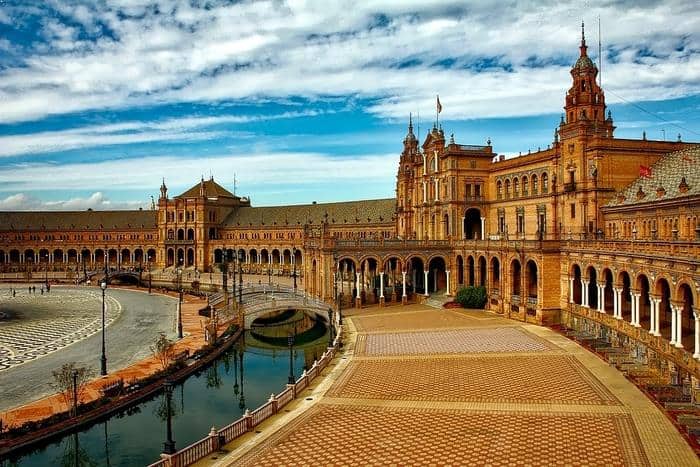
There’s no need to invest a lot of money into Spain’s residence-by-investment real estate program. After all, legal residents of Spain are subject to the same type of inquisition by the taxman that US citizens are, and becoming a naturalised Spaniard through residence is a pain.
Naturalisation in Spain is a highly bureaucratic process and usually requires 10 years of solid residence in the country. The tax burden for those ten years can be extremely high.
However, those married to Spanish citizens can apply for citizenship after just one year of tax residence. In addition, a Spanish passport is an excellent travel document offering freedom of movement throughout the European Union (EU).
Spain doesn’t generally allow dual citizenship, so obtaining a Spanish passport through marriage may leave you with a difficult choice to make.
4. Portugal

As with neighbouring Spain, Portugal requires those who obtain residence to live in the country for a lengthy period – at least six years in Portugal’s case – before applying for a passport. However, those married to Portuguese citizens can apply for naturalisation much faster.
However, someone married to a Portuguese citizen, or even in a relationship with one, can apply for naturalisation after three years of marriage or cohabitation.
The process doesn’t even require you to spend time on Portuguese soil, meaning you could live overseas with a Portuguese spouse and still qualify. Bear in mind that while the process is often easier for foreign spouses, naturalisation requires them to learn some Portuguese and have ties to the country.
5. Mexico
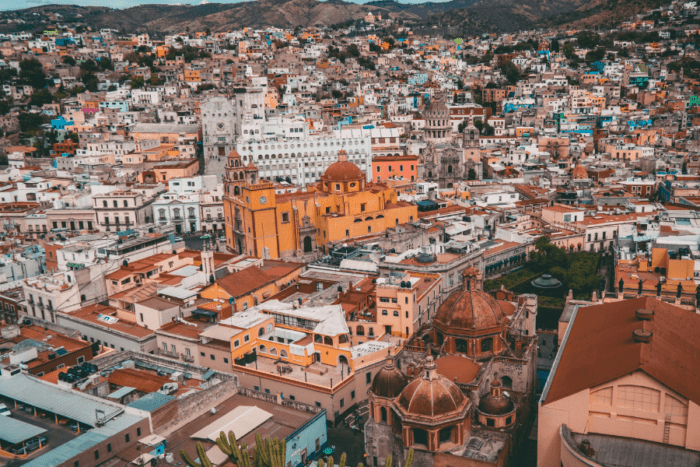
While you won’t be able to obtain Mexican citizenship through any of the economic citizenship scams you might encounter online, it’s possible to shave three years off the normal naturalisation process and obtain a Mexican passport via the marital route.
As the spouse of a Mexican – and the country recognises gay marriage – you’re entitled to apply for naturalisation after just two years of living with that spouse in Mexico.
The United States Government and many US citizens may be convinced that Mexico is a poor country everyone is clamouring to get out of, but the truth is it’s a two-way street with plenty keen to get in, including from the US.
The Mexican passport is a pretty good travel document, ranking as one of the best passports in the world on the Nomad Passport Index, with visa-free access to 153 countries, including the entire Schengen Area of Europe.
6. Ireland

If you don’t have enough heritage to claim Irish citizenship by descent, don’t fret. Those married to, or in a registered civil relationship with, an Irish citizen can apply for an Irish passport after one year of ‘reckonable residence’ provided the relationship has existed for three years or more.
Unlike many other countries, Ireland now recognises gay marriage, so your sexual orientation won’t hold you back from getting a passport.
The residency requirement prior to naturalisation means you’ll be on the hook for the country’s high-income taxes for at least one year, and you’ll need to spend a reasonable amount of time in Ireland – at least two years – to qualify.
But once you have the Irish passport, you’ll be able to live anywhere in Europe and travel almost anywhere on earth. Corporate taxes there are quite low, too.
7. Poland
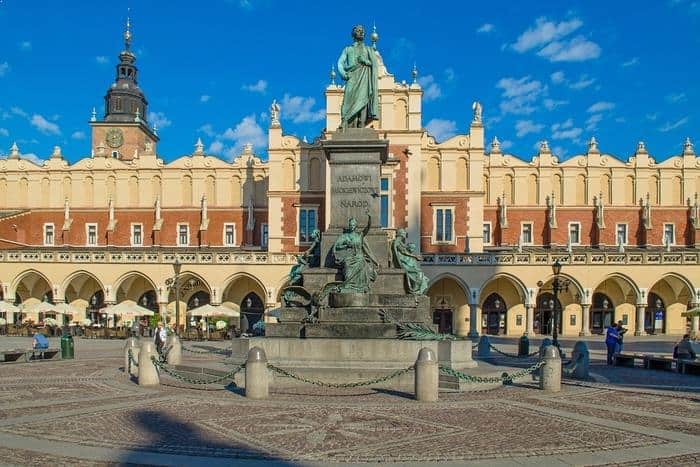
Similar to Ireland’s program, Poland allows those with a Polish spouse to become a naturalised citizen after three years of marriage and two years of uninterrupted residence in the country. Unlike Ireland, and other countries like Mexico, Poland does not recognise gay marriage or civil unions.
While you may be able to sneak out occasionally, the Polish government wants you to live in their country. Your year of residence will incur tax on your worldwide income at rates of 18-32%, though, if you have an offshore company, there may be ways to reduce your income legally.
That said, this is still one of the more difficult citizenships to get by marriage, with a requirement to pass a language exam. Regardless, two years of living in Poland should help you improve your Polish or at least learn enough to get by.
8. Colombia

Colombia has the fourth largest economy in Latin America, a continent with endless opportunity. In our opinion, it is the hidden gem of the Americas, so much so that the Nomad Capitalist founder, Andrew Henderson, obtained his residence by making an investment there.
Marrying a Colombian citizen speeds up the 5–10 year-long naturalisation process – in fact, it reduces the wait to only two years. You must also pass a citizenship test, which is conducted in Spanish. There is a faster way to get your hands on a Colombian passport: if you’re from another Latin country, the timeline is one year.
9. Switzerland

One of the most sought-after citizenships on earth, Switzerland offers a simplified naturalisation process to those married to a Swiss national.
The late, great singer Tina Turner relinquished her US citizenship in favour of becoming Swiss after fulfilling a rather long 12-year residency requirement. So be warned: getting a Swiss passport through permanent residence alone is a very slow process.
However, the simplified process allows spouses of Swiss nationals to apply for citizenship after five years of marriage, as long as they live in the confederation.
You don’t even need to speak German, French or Italian, but you should be able to show you have integrated into the Swiss way of life. It’s also possible to qualify while residing outside Switzerland, but that process takes an extra year. Under this option, you can apply for citizenship after six years of marriage if you can demonstrate some evidence of ‘close ties’ to Switzerland, such as frequent visits during your marriage.
10. Belize
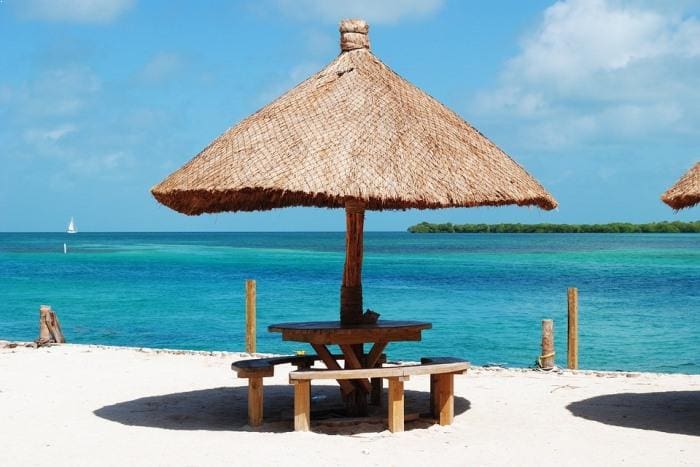
Belize has several second-residence programs, including a popular Qualified Retirement Program (QRP) program for retirees aged 45 and over. Note, however, that this does not lead to citizenship. If you’re a little younger and married to a Belize citizen, you can apply for naturalisation after just one year of legal residence there.
A Belize passport doesn’t offer excellent visa-free travel but it does fill in the travel gaps that many other Tier-B passports don’t have, such as visiting the UK, Ireland, Mexico and South Africa. Belize is also an English-speaking country, making it easier for Westerners to acclimatise there.
11. Serbia

Walk around Belgrade for just an hour and you’ll realise that this ancient city is just as rich in culture, history and scenery as Berlin, Paris or Rome. Not only that, but the people are warm and approachable. Serbia is one of our up-and-coming locations for lower-cost living in Europe and has one of the world’s fastest-improving passports.
So, how do you become a Serbian citizen through marriage? Quite simply, you must have been married to a Serbian for three years, maintain permanent residence there, sign documents verifying that Serbia is your country and renounce any existing citizenships.
The rules on how much time you need to live in Serbia are somewhat unclear and not always enforced, but they are generally less strict than in most Western countries which have a nasty habit of counting every day.
12. Cape Verde

Marrying a Cape Verde citizen allows you to claim citizenship right away, should you desire. If you want the fastest second passport by marriage, this African country may be your best option.
That’s because anyone who marries a Cape Verde citizen is entitled to apply for ‘citizenship by option’ immediately after marriage. Unlike in other countries, both men and women can qualify for a passport through this method.
Of course, this is not without its challenges. First of all, the population of Cape Verde is barely 600,000 people, meaning you’ve access to a limited number of romantic contenders. Secondly, Cape Verde is an archipelago far off the West African coast, which makes getting there and living there a bit of a stiff challenge. Oh, and most of the population speaks Portuguese.
That said, if you do happen to meet – perhaps in Portugal – and fall in love with a Cape Verde citizen, it’s possible to get married, skip the five-year naturalisation path and obtain your citizenship almost immediately.
13. France

France holds a certain romantic appeal for many, especially US citizens who can’t seem to get enough of that Parisian ‘je ne sais quoi’, even if it comes with a large side of disdain for, well, North Americans.
Truth be told, most foreigners can’t get enough of the culture, the wine and the cuisine.
But, here at Nomad Capitalist, we’re wise to their Gallic ways: no matter how many different types of cheese they have, we just can’t get past the high taxes.
That said, perhaps love really does conquer all and if ever there was a European country to fall in love with or in, it’s France.
French nationality law is based on the principles of ‘jus soli’, or right of soil, and people are generally allowed to apply for French citizenship by naturalisation after four years of continuous residence in France.
If you marry a French national, you must live in France with your spouse. It’s still possible to apply for citizenship through marriage if you’ve lived together outside of France, but it will take longer. If you were married outside of France, you’ll need to submit the required records to the relevant embassy or consular service.
If you do decide to tie the knot in France, you don’t necessarily have to live there to claim citizenship by marriage. Plus, once you finally get your citizenship, you’re free to bid adieu to France and move to another EU country for work and, almost certainly, lower taxes.
14. Italy
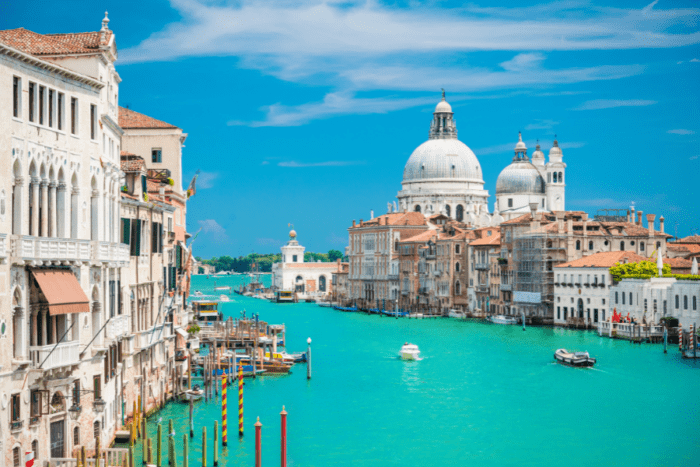
Similar to France, Italy is another country that brings to mind visions of romance, passion and family. Even for those who don’t have Italian ancestry, Italy still holds a certain allure.
A spouse of an Italian citizen can apply for citizenship after being married for two years if the couple lives in Italy and three years if they reside abroad. If the couple has biological or adopted children, these periods are halved.
Marrying an Italian also brings other advantages, such as minimal physical presence requirements while applying for EU citizenship. Add to this the country’s enticing €100,000 flat-tax regime on foreign income, plus additional tax benefits at both national and regional levels, and you could enjoy significant tax savings. Now that’s amore.
Other Citizenship Options
Most people don’t take the marriage route to citizenship when looking for a second passport – finding someone and falling in love is immeasurably more complex than investing in a company or buying a property.
Still, if you are married to, or planning to marry, someone from the countries listed above marriage can be a quick and straightforward path to securing a strong second passport. Even if love runs out the door, citizenship could be a nice cherry on the cake of an otherwise fulfilling relationship with someone you met while living your Nomad lifestyle.
Either way we can help. Even if you don’t qualify for citizenship by marriage, or you want more information on second passports in general, you can learn more here. Nomad Capitalist is the holistic solution for offshore tax planning, dual citizenship, asset protection and global diversification. Apply to become a client and learn more about the personalised options available to you.


How to Get UAE Citizenship – The Complete Guide
Sovereignty – both national and personal – shapes ambition, secures wealth, and defines status in a shifting global order. For the high-achieving global citizen, acquiring a second or even third passport is more than a lifestyle upgrade; it’s a strategic move in long-term financial and geopolitical positioning. But not all citizenships are created equal – […]
Read more

A Gateway to Central Asia: New Kazakhstan Golden Visa Program for 2025
Central Asia just raised the stakes in the golden visa game. In May 2025, Kazakhstan officially launched a 10-year Golden Visa program in an ambitious move to position the country as a serious contender in the global investor migration space. At a time when other international regions are rolling back their citizenship and residency options, […]
Read more

Top Countries Offering Golden Visas in 2025
Residency is no longer about lifestyle – it’s about leverage In an increasingly unpredictable world, Golden Visas offer something most governments can’t: certainty in exchange for capital. They are more than migration tools; they are strategic safeguards offering residence rights, future citizenship, global mobility, and access to tax-friendly jurisdictions. For investors, entrepreneurs and globally minded […]
Read more




